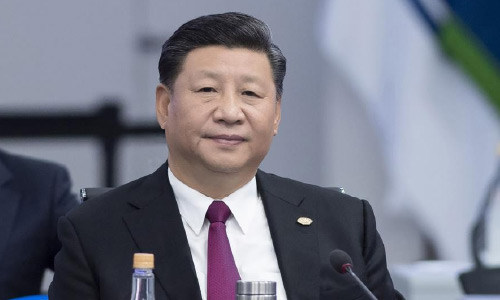BEIJING - Chinese President Xi Jinping has led a chorus for safeguarding multilateralism and charting the course for the world economy and global governance at a summit of the Group of 20 (G20) major economies.
To lead economic globalization toward the right direction, Xi said in a much anticipated speech on Friday that the G20 members should embrace development opportunities with greater openness and seek win-win results with better cooperation.
The Chinese leader also pledged that the country, as a leading global economy, would undertake further opening-up measures, such as releasing the 2019 edition of the negative list on foreign investment, further bringing down China’s overall tariff level, and introducing a punitive compensation mechanism for intellectual property infringement cases -- all demonstrating China acting as a flag-bearer of free trade and multilateralism.
CHAMPION OF MULTILATERALISM
Multilateralism has been one of the keywords in Xi’s speech at the Osaka summit and his meetings with other G20 leaders on the sidelines of the summit, as he noted that the world economy is once again at a crossroads 10 years after the global financial crisis.
Echoing his remarks, other G20 leaders also sent a clear and strong message to the world on upholding multilateralism and an open world economy to renew global confidence in trade liberalization and economic globalization.
“A free and open economy is the foundation of global peace and prosperity...While anxiety and discontent with abrupt changes due to globalization can at times generate the temptation for protectionism, bringing about sharp confrontation between states,” said Japanese Prime Minister Shinzo Abe, the host.
“Now is the time we send out a strong message on the maintenance and strengthening of free, fair and non-discriminatory trading system,” he added.
European Commission President Jean-Claude Juncker noted that issues like climate change, sustainable development, terrorism, trade and global economic growth cut across boundaries, societies and economies, and require a concerted, comprehensive response within the framework of a multilateral rules-based system.
“Multilateralism is in the Europe’s DNA. By being united and working together, we make ourselves individually and collectively stronger,” said Juncker in a message to the summit.
According to Swaran Singh, a professor from the School of International Studies at the Delhi-based Jawaharlal Nehru University in India, “Xi’s much anticipated speech at Osaka G20 summit aptly provides a direction for improving global trading system” to avoid “being myopic and guided by short-term interests.”
“China is today seen as a major locomotive for providing momentum to ensuring trust in global trading systems,” he said.
Echoing Singh’s remarks, Hugo Dobson, head of the School of East Asian Studies at the Sheffield University in Britain, also saw China as the champion of multilateralism and the global trading system.
On China’s ongoing efforts in this regard, Dobson said “it was already evident when China held the G20 presidency in 2016 that it was transitioning from a rule taker to a rule maker that seeks to shape international norms rather than just respond to them.”
“So, China appears to be continuing along this trajectory,” he told Xinhua. (Xinhua)
Home » World » At G20, Xi Leads Chorus for Multilateralism
At G20, Xi Leads Chorus for Multilateralism

